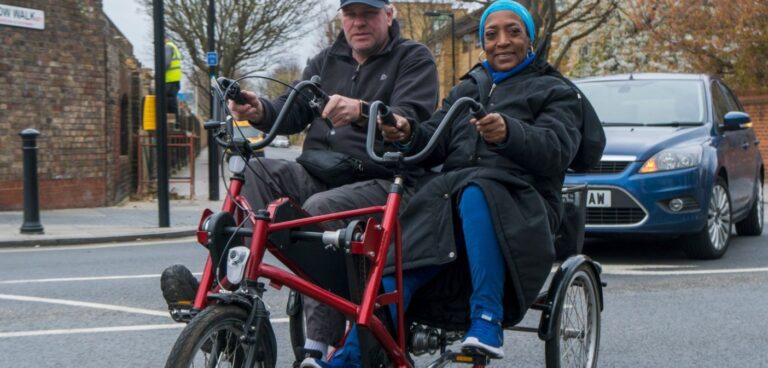Walking and cycling charity Sustrans and Arup, a global engineering and design consultancy, have released a report that outlines practical steps to help make urban cycling more inclusive in the UK.
Cycling for Everyone highlights inequalities within cycling participation in urban areas between different demographics, including those from ethnic minority groups, women, disabled people, older people, and those at greater risk of deprivation.
While cycling has proved its worth during the Covid-19 pandemic, as a safe and socially distanced way for people to exercise and as a means to travel to work and for other essential journeys, the study found 74% of people from ethnic minority groups living in cities and towns do not currently cycle.
Despite low participation levels, the report found that 55% of people from ethnic minority groups who do not currently cycle would like to start. This compares to 37% of white people. The report warns the needs of many disadvantaged and marginalised groups have been ignored and urges the transport sector to raise its ambition and commitment to make cycling more inclusive.
While the report suggests tackling safety, through protected cycle lanes and low-traffic neighbourhoods, is critical, it also highlights a lack of confidence, and security, as well as the financial outlay of purchasing a cycle, among the barriers that are more likely to prevent those from ethnic minority groups and other disadvantaged communities from cycling:
- 33% of people from ethnic minority groups were not confident in their cycling skills
- 25% people from ethnic minority groups stated that a lack of facilities at home or work (for instance, secure cycle storage) was a barrier to cycling
- 20% of people from ethnic minority groups stated the cost of a suitable cycle stopped them from cycling.
In order to address these barriers, the report highlights recommendations that aim to help to work towards reducing inequalities within cycling. These an extension of the UK government’s Cycle to Work scheme to include those in low-income jobs, as well as support to those not in employment, to ensure that cost is not a barrier for anyone looking to purchase a cycle.
The report also urges the need for improvements in secure cycle storage in residential areas, and particularly for flats and high-rise buildings where storing a cycle inside may prove challenging. Furthermore, to improve confidence free cycle training needs to be provided to all children and adults, and cycling infrastructure expanded to reach areas where transport options are poor and high traffic levels exist.
“In order to work towards real change and make cycling more inclusive, we call upon the industry, local authorities and central government to welcome and support all people to cycle,” said Daisy Narayanan, director of urbanism at Sustrans. “It is only when we move away from exclusively designing towns and cities for those who already have access to move through spaces with ease, can we really create equitable places to live and work.”





